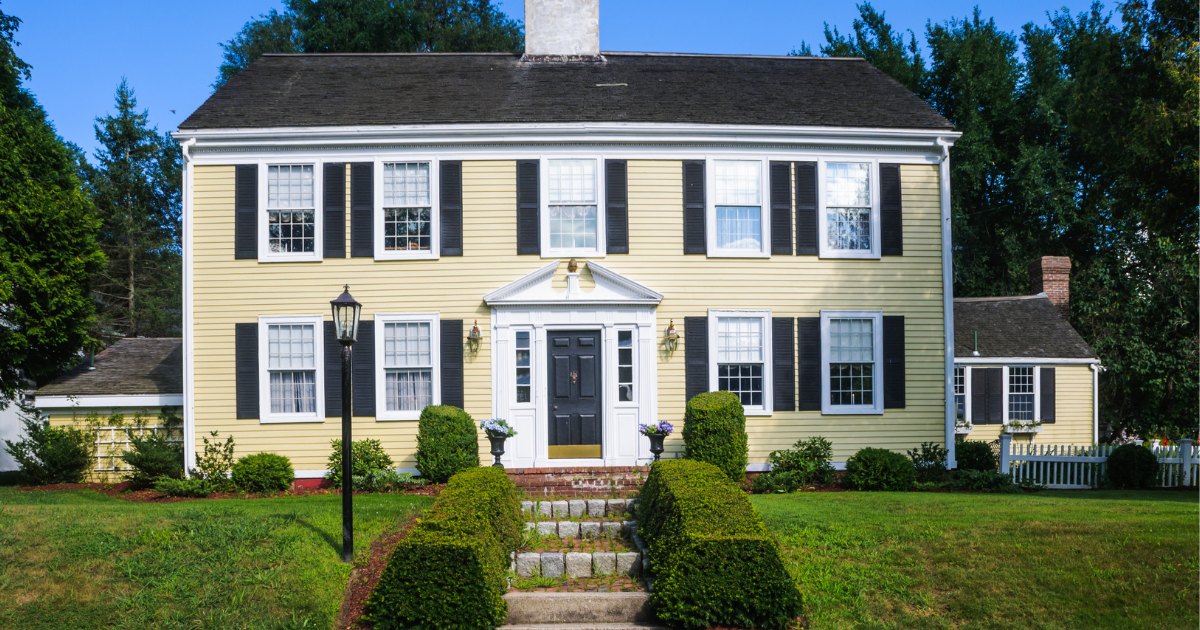When you’re buying or selling a home, understanding what drives property values can make all the difference in your decision-making.
Whether you’re a first-time buyer trying to get the most bang for your buck or a seller looking to maximize your return, knowing these key factors will help you navigate the real estate market with confidence!
Location, Location, Location
You’ve probably heard this real estate mantra before, and there’s a good reason it’s stuck around. Location remains the biggest factor in determining your home’s value, and it’s something you can’t change once you buy.
Think about it – a modest home in a desirable neighborhood will often be worth more than a large home in an area with fewer amenities.
Proximity to good schools, shopping centers, public transportation, and employment hubs all play major roles.
In Massachusetts and New Hampshire, homes near the coast, major highways like Route 128 or I-95, or within commuting distance to Boston typically command higher prices.
The neighborhood itself matters too. Well-maintained streets, low crime rates, and a sense of community can significantly boost property values.
Believe it or not, even something as simple as mature trees lining the street can add appeal and value.
Size and Layout Make a Difference
While bigger isn’t always better, square footage definitely impacts value. But it’s not just about total space – how that space is configured matters enormously.
An open floor plan that flows well will often be more valuable than choppy, disconnected rooms of the same total size.
The number of bedrooms and bathrooms is particularly important. Most buyers want at least three bedrooms and two full bathrooms. If your home falls short of these expectations, it could affect its marketability and value.
On the flip side, having that extra bedroom or bathroom can be a real selling point.
Condition and Age: The Maintenance Factor
A well-maintained older home can often outperform a neglected newer one in terms of value. Buyers pay attention to both the big things and the small details. Fresh paint, updated fixtures, a well-maintained roof, and modern HVAC systems all contribute to higher valuations.
Major systems are especially important. When was the last time the roof was replaced? How old is the heating system? Are the windows energy-efficient? These aren’t just comfort issues – they’re financial ones. Buyers factor in the cost of necessary repairs and updates when making offers.
Market Conditions and Timing
Real estate markets are constantly shifting, and timing can significantly impact your home’s value.
In a seller’s market with low inventory and high demand, you might see your home value increase substantially.
Conversely, in a buyer’s market, you might need to be more realistic about pricing.
Economic factors like interest rates, employment levels, and local economic development also play roles.
For instance, when a major employer moves into or out of an area, it can affect property values across the region.
Comparable Sales in Your Area
Your home’s value doesn’t exist in a vacuum – it’s largely determined by what similar homes in your area have sold for recently. These “comps” are what real estate professionals use to help price your home accurately.
The key is finding truly comparable properties: similar size, age, condition, and location. A home that sold six months ago might not be as relevant as one that closed last month, especially in a rapidly changing market.
Special Features and Upgrades
Certain features can add significant value to your home.
A renovated kitchen or bathroom, finished basement, garage, deck, or patio can all boost your property’s worth.
Energy-efficient features like new windows or upgraded insulation are increasingly valuable to buyers who care about both environmental impact and utility costs.
However, not all improvements add equal value. A swimming pool might be a selling point for some buyers but a deal-breaker for others.
It’s important to understand your local market and what buyers in your area typically value.
School Districts Matter
Even if you don’t have children, school district quality significantly affects home values.
Homes in highly-rated school districts consistently command higher prices and tend to hold their value better over time. This is especially true in Massachusetts and New Hampshire, where education quality varies significantly between districts.
When evaluating a home, research the local schools’ ratings, test scores, and reputation. This information is readily available online and can give you insight into long-term value potential.
Making Informed Decisions
Understanding these factors helps you make smarter real estate decisions, whether you’re buying or selling.
When you’re looking to purchase, consider not just what you want now, but what features will help maintain and increase your home’s value over time.
If you’re selling, focus on the factors you can control. While you can’t change your home’s location or the local school district, you can ensure it’s well-maintained, competitively priced based on recent comparable sales, and presents well to potential buyers.
The real estate market can feel overwhelming, but you don’t have to navigate it alone. Working with experienced local professionals who understand the Massachusetts and New Hampshire markets can help you make informed decisions that protect your investment and achieve your goals.
Ready to explore what your home might be worth or start your search for the perfect property? The team at Laffely Real Estate Associates has the local expertise and personalized service to guide you through every step of the process.
Give us a call at (978) 255-4788 to discuss your real estate needs and discover how we can help you succeed in today’s market!






